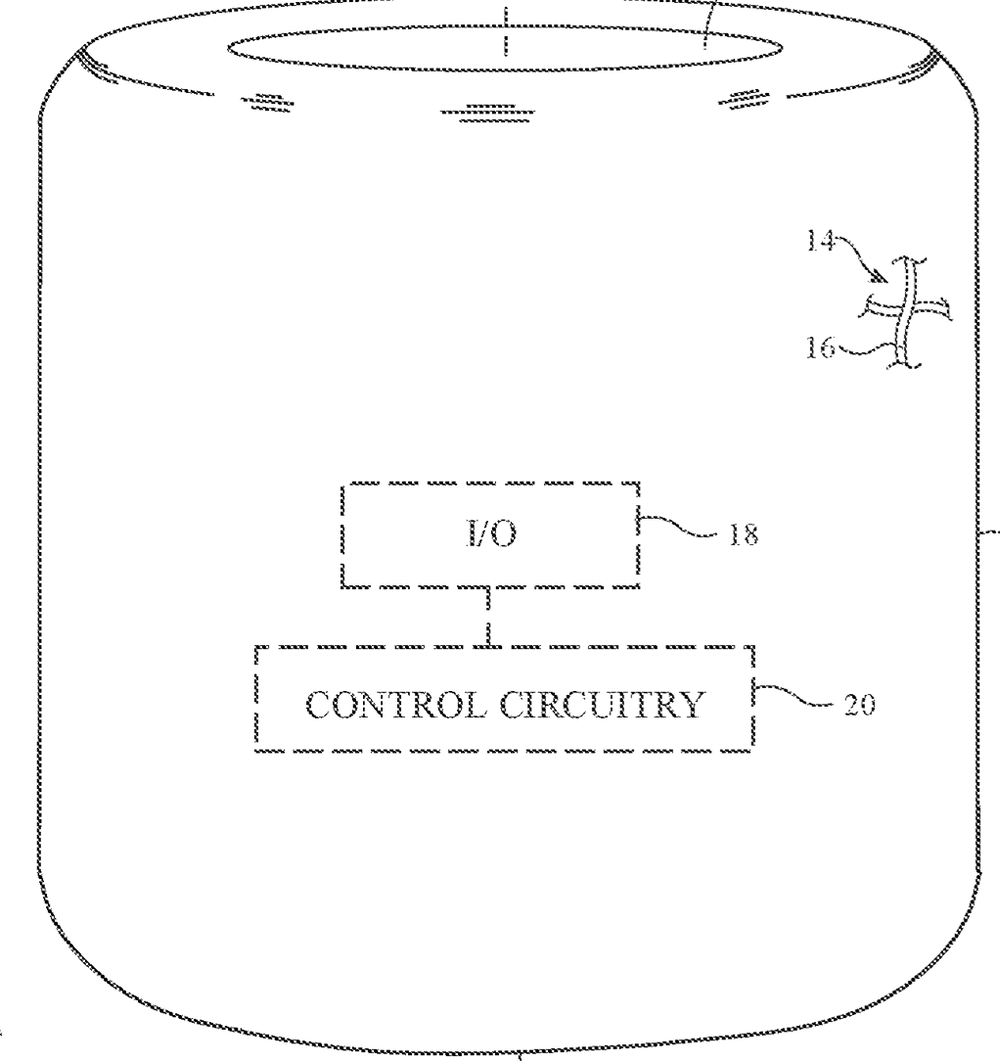Future HomePods (and perhaps HomePod minis, though this is less likely) will offer more visual feedback features, as hinted at in a new patent filing (number 20200393121) by Apple.
In the the patent filing, the tech giant notes that electronic devices such as voice-controlled assistant devices (that would be the HomePod) may include light-emitting components. During operation, the light-emitting component may emit patterns of light that serve as visual feedback. The feedback helps confirm to a user that an electronic device is operating as desired.

However, Apple says that it can be challenging to incorporate light-emitting components into an electronic device. If care isn’t taken, the patterns of light that are emitted won’t appear as intended and the appearance of the device may not be as desired, or the device may be overly bulky.
Apple’s idea is to take the HomePod’s current visual features and expand on them. For example, the visual feedback could offer illuminated buttons, displays that display images, visual feedback areas that display still and/or moving patterns of light to indicate to a user that a command has been received and/or is being processed.
Here’s the summary of the invention: “An electronic device such as a voice-controlled speaker device may have a housing. A speaker and other input-output components and control circuitry may be mounted within the housing. A set of controlled light-emitting components may emit light that passes through an upper housing wall or other housing structure. Light from the light-emitting components may be spread laterally by multiple light diffusing layers such as a lens diffuser layer having lenses overlapping respective light-emitting components, a textured diffuser layer formed from textured coatings on a substrate, and a volume diffuser layer having light-scattering structures in a polymer layer.
“The lens layer may be formed from a transparent member with integral lenses having curved inner surfaces and opposing curved outer surfaces and central depressions. A light-guiding portion of the transparent member may guide light to a circular peripheral edge to form an illuminated ring visible through the upper housing wall.”
